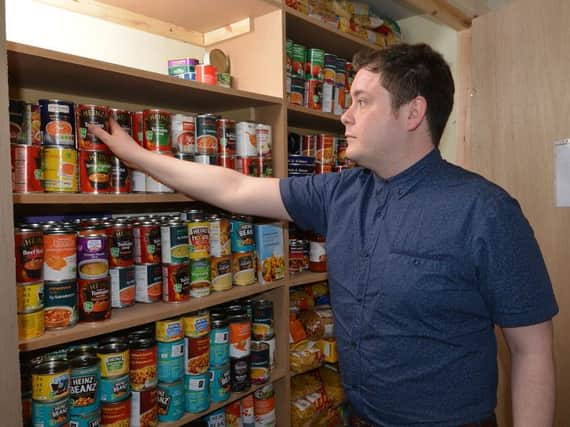Helen Chamber: Wounds of recession still deepest for the poor


To say these are uncertain times could be considered a significant understatement, but no-one would argue it is one of the few statements which can be currently made with any semblance of confidence. Unfortunately, another such statement is that those in our society most in need – those in poverty and isolation, the disabled, the elderly and the marginalised – are the ones who are likely to be hit the hardest by uncertainty.
Nearly a decade on from the global financial crash, the wounds of recession are still deepest for those at the edges of society. Data released by The Trussell Trust in April this year showed food bank use in the UK has risen every year since 2008, and reached an all-time high in 2015-16, to give just one stark example.
Advertisement
Hide AdAdvertisement
Hide AdWhich is why now, in these testing times, it’s so critical that we don’t lose focus of the vulnerable and disadvantaged in society, but rather redouble our efforts to support them. Providing that support cannot, however, be left to one sector of society. There are fantastic charities and organisations across Scotland which work tirelessly to transform the lives of those they support, but to ensure they continue to have the maximum impact possible needs commitment from across society; from individuals to business to government.
In recent years, donations to charities from the public in Scotland have remained steady but growth has slipped below the rate of inflation, while public sector cuts have led to a drop in funding from national and local government across the third sector. At the same time, charities are having to spend more to maintain and increase their day-to-day services and cannot afford to plan for the future and ensure their own sustainability.
With financial, and fiscal, instability on the horizon again, and huge question marks over how and if funding contributions received from the European Union will be replaced, it is critical that steps are taken to ensure Scotland’s charities can not only continue to function and protect our most disadvantaged, but also develop themselves to better help those who need their services in the future. To take these steps will require secure funding and generous, long-term philanthropy from across society, but also the expertise and experience to manage that funding effectively.
At Inspiring Scotland turmoil is something we have seen before and is part of the reason we were founded. We opened our doors in 2008 at the beginning of the recession which followed the global financial crash and have since been working with some of Scotland’s leading charities.
We understand that by supporting these organisations to think strategically, be resourceful and become leaders in their field, they can withstand uncertainty and identify opportunities whilst still focusing on improving the lives of the most disadvantaged in our communities. We’ve helped organisations grow and develop through steady funding, but we’ve also helped them raise more funding and work smarter and more effectively to maximise social impact. We’ve brought together expertise from voluntary organisations and the public and private sectors and helped to drive a shift in thinking and working practices.
We’ve been able to do this thanks to backing from philanthropists, businesses, charitable trusts and foundations, and Scottish Government who understand the need to come together to maximise the impact of any available resources.
In the light of recent events, that need is greater now than ever before; we all have a responsibility to protect and support the most vulnerable in society but also a responsibility to ensure our support has the greatest possible impact by developing an effective and sustainable third sector.
How things will continue to change on the political stage, we cannot know; what is clear is that Scotland’s voluntary sector needs to be in the strongest position possible to tackle social issues which may become tougher. More than ever before all sectors need to pull together to protect those most vulnerable in society.
Advertisement
Hide AdAdvertisement
Hide AdAt Inspiring Scotland, we commit to using all of our experience, abilities and resources to ensure that our charities can and will continue to focus on those they serve, and to working tirelessly to advancing a stronger, more effective and more compassionate third sector.
• Helen Chamber is head of strategy and policy at Inspiring Scotland www.inspiringscotland.org.uk